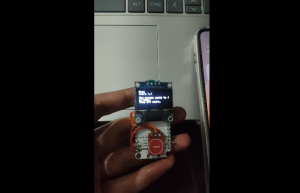Japanese company Mitsubishi Materials Corp. offered an apology on Sunday to about 900 American former prisoners of war for using them in forced labor during World War II.
The apology was given by Mitsubishi Materials Senior Executive Officer Hikaru Kimura at a solemn ceremony held in the Museum of Tolerance at the Simon Wiesenthal Center in Los Angeles.
"Today we apologize remorsefully for the tragic events in our past," Kimura said. He sought forgiveness for the "harsh, severe hardships" the American POWs went through when they were subjected to hard labor in Mitsubishi's mines and industrial plants, Chicago Tribune reports.
"We also have to apologize for not apologizing earlier," Yukio Okamoto, an outside board member for Mitsubishi, said. Mitsubishi's apology comes almost 70 years after the war ended, according to Chicago Tribune.
James Murphy, a 94-year-old veteran who worked at Mitsubishi Mining's Osarizawa Copper Mine and survived the Bataan Death March in the Philippines, accepted the apology on behalf of other WWII veterans. He is one of the few veterans left alive to receive the Japanese company's apology.
"This is a glorious day. For 70 years we wanted this," Murphy said. His family and other POWs who experienced forced labor sat in the audience during the ceremony, Reuters reports.
The company's executives gave a private apology before the ceremony started, after which they took a long, deep bow before the POW representatives.
Murphy graciously accepted the company's apology, saying of the Japanese executives' words: "They touch the heart. I know that we can trust those words." He also said the apology is a "sincere statement" that shows "deep remorse," according to Chicago Tribune.
In 2010, Ishihara Sangyo, a chemical manufacturing company based in Yokkaichi, issued an apology for using POW labor.
Exploiting American POWs for hard labor during WWII was "one of the dark episodes of the company's history," the company's managing executive officer Akira Kobayashi said. Giving the apology was "the right thing to do," he added, according to Time.
During WWII, American and allied prisoners were commonly beaten, abused, starved to death and subjected to forced labor in mines and factories by their Japanese captors. More than 60 companies used POWs for hard labor in exchange for a small fee given to the Imperial Army.
Based on information from the U.S. Congressional Research Service, 40 percent of the 27,000 American prisoners in Japan died in captivity while only 1 percent of American prisoners died in the hands of German captors during WWII, according to Time.
© 2025 HNGN, All rights reserved. Do not reproduce without permission.








